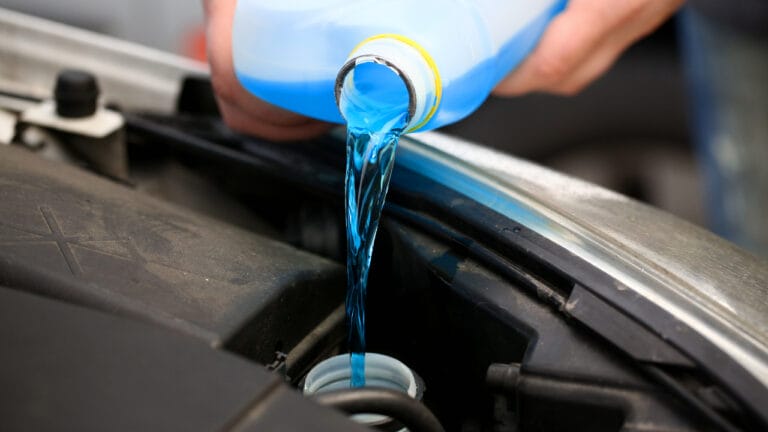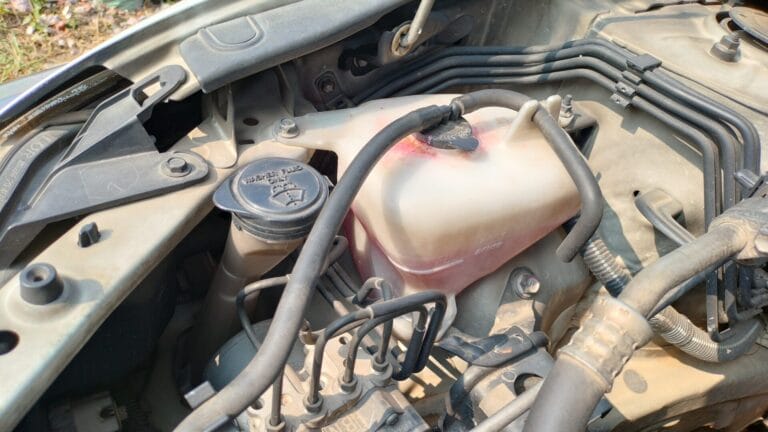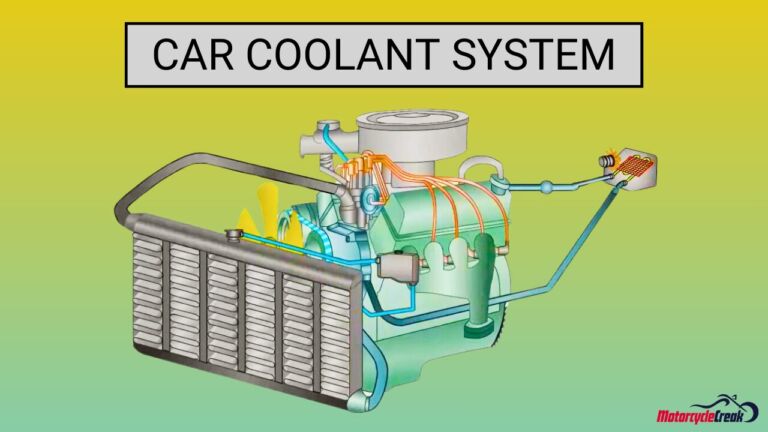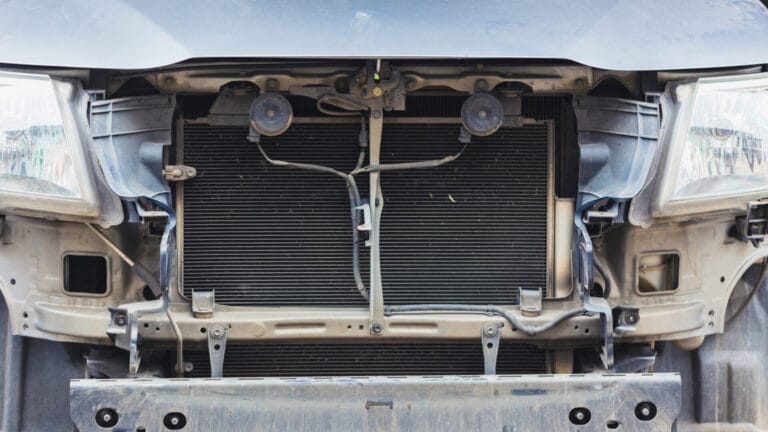Running car AC without Refrigerant? How Long? Is It Safe?
The summer season is here, and the sun is shining bright. You are ready to hit the road with your car AC on full blast, but wait! What happens if there’s no refrigerant in your AC? This is the last thing any car enthusiast expects. But what now? Is it possible to still running car AC without refrigerant?
Well, it may seem like a simple question, but the answer is not.
Yes, you can run a car AC without refrigerant, but it will compromise its cooling capacity and overall performance. Without refrigerant, the AC fails to produce cold air, resulting in discomfort for passengers, especially during warm weather.
Additionally, running the AC without refrigerant can cause damage to the compressor, leading to potential system failure. Therefore, it is not possible to run a car AC without refrigerant.
In this blog, we will dive into the world of car AC refrigerants. We will cover the basics of how they work, their role in keeping your car cool, and potential risks, etc. Lastly, we will explore alternative cooling strategies that can be used in case you cannot run your car AC with refrigerant.
So, sit back and read on to learn more about running a car AC without refrigerant.
Running Car AC without Refrigerant; Impact and Consequences
In theory, yes, you can drive without refrigerant, but it’s strongly advised against. The AC system won’t provide the cooling comfort you expect, and the strain on the components, particularly the compressor, can lead to significant damage.
How Car AC System Works
The refrigerant is the lifeblood of the entire air conditioning system and is responsible for absorbing heat and cooling the air inside your vehicle.
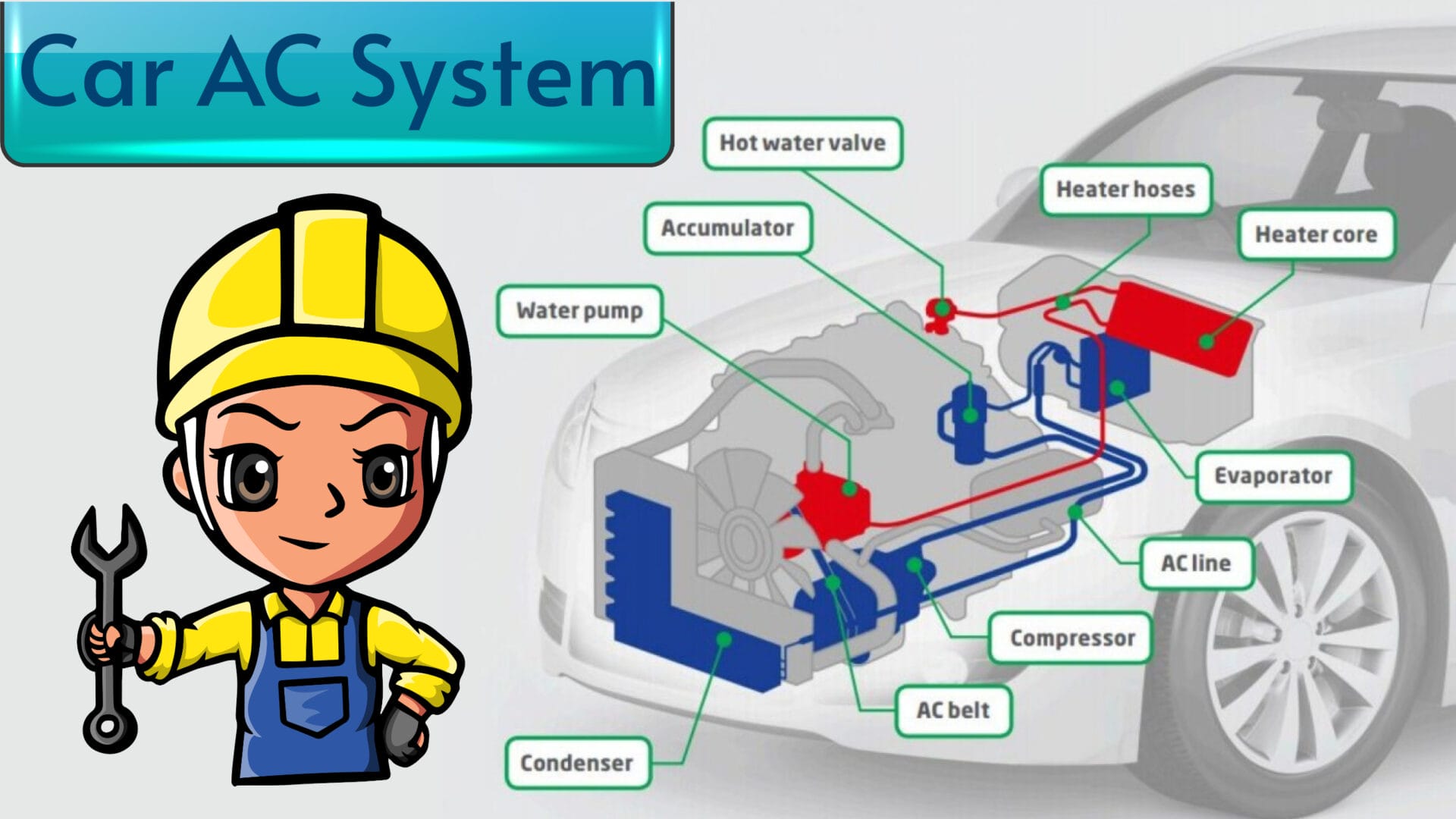
At its core, the refrigerant operates within a closed-loop system, undergoing state changes from gas to liquid and back again. This transformative journey is the secret sauce behind your car’s ability to maintain a refreshing climate. It transforms low-pressure gas into a high-pressure, high-temperature gas by absorbing heat from the cabin air. It starts its journey in the compressor, where it is pressurized to a high level. Refrigerant works as lubricant in compressors to prevent lockup or failure. Without refrigerant, there is no lubrication, leading to overheating, sometimes seizing up, and being entirely damaged.
Role Of Refrigerant in Car AC System
1. Compressor:
The compressor is the powerhouse of the AC system. This device, usually belt-driven by the engine, pressurizes the refrigerant, transforming it into a high-temperature, high-pressure gas.
2. Condenser:
Next up is the ac condenser, where the hot, pressurized gas releases its heat to the outside air, converting into a high-pressure liquid. Condenser is the heat exchanger, shedding the warmth accumulated during the first act.
3. Expansion Valve:
As the refrigerant transitions to a high-pressure liquid, it flows through the expansion valve. It then regulates the release of the refrigerant through the refrigerant line into the next stage.
4. Evaporator:
Now, the high-pressure liquid enters the evaporator; here, the refrigerant rapidly expands, turning into a low-pressure liquid and absorbing heat from the surrounding air. It transforms the warm cabin air into a refreshing chill.
Running Car AC Without Refrigerant- Consequence
This entire AC system working process is a continuous cycle, with the refrigerant circulating through the compressor, condenser, expansion valve, and evaporator. If there is low, or no refrigerant to circulate, these components can stop working.

So, maintaining the optimal refrigerant pressure ensures that the cooling system operates at its best. If there is no refrigerant, the delicate balance needed for your car’s air conditioning to work seamlessly will be lost.
- Reduced Cooling Efficiency: With low refrigerant, expect a decline in cooling performance as the refrigerant may not go through the evaporator coil properly. No refrigerant means no cooling effect; this will leave you with warm cabin air, particularly on hot days.
- Less lubrication: Refrigerant isn’t just about cooling; it also serves as a lubricant for the compressor. A gradual loss of refrigerant makes the compressor work harder, increasing wear.
- Impact on Other Components: Low refrigerant stresses components like the condenser and evaporator. This can disrupt the smooth operation of the compressor and the overall functionality of your car’s AC system.
- Strain on the Compressor: Lack of refrigerant in the car’s AC system can result in overheating and potentially irreparable damage. This can result in costly repairs or even the need for a new AC system altogether
- Increased Fuel Consumption: Inefficiencies from low refrigerant make the AC system work harder, elevating fuel consumption. Operating without any refrigerant contributes to overall reduced fuel efficiency.
Signs Your Car AC Needs a Refrigerant Recharge
Being aware of your surroundings is crucial for safety. Whether it’s low coolant or no car AC refrigerant, it’s essential to catch issues before they become hazards. You can’t stop and check refrigerant every mile, but some signs can tell you about problems without stopping. What are they? Find out below to make your drive safer and worry-free.
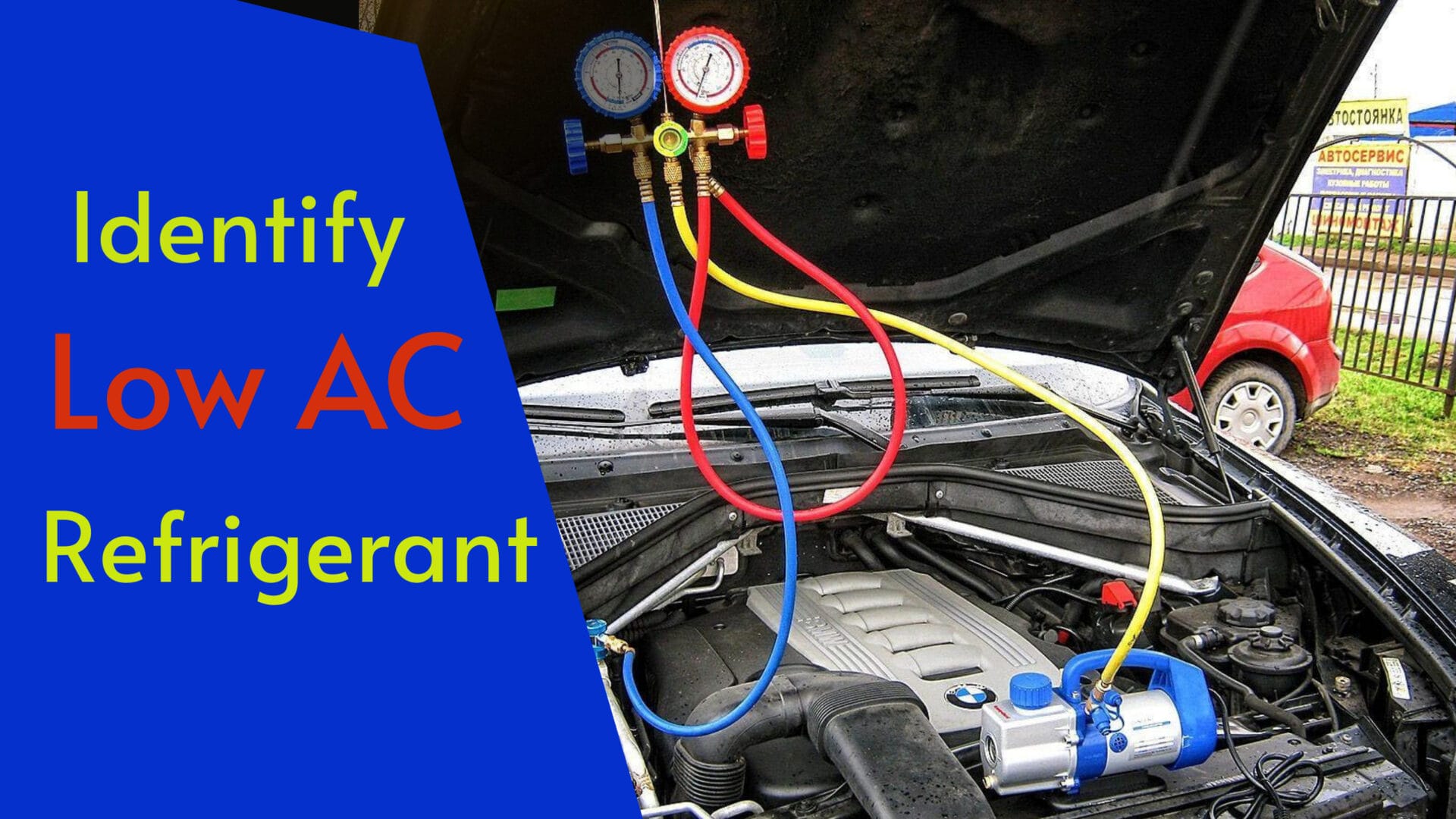
- If you face reduced cooling capacity and warm air blowing from vents, it indicates low refrigerant levels
- Unusual noises or vibrations coming from the AC system is another indication your refrigerant needs a recharge.
- If your AC struggles to cool the interior, understand that there is insufficient refrigerant in the system’s cooling capacity.
- If you notice moisture or water accumulation inside the car, check the refrigerant system. A refrigerant leak may cause excess condensation, leading to moisture buildup in the cabin.
Keeping an eye on these signs allows you to proactively address refrigerant issues, ensure your car AC operates efficiently, and provide a comfortable and cool driving experience. Whenever you notice any of these signs, take your car to an air conditioning repair center.
Running Car AC Without Refrigerant; Alternative Cooling Strategies
Beat the Heat Without Refrigerant
Your car’s AC is waiting for a refrigerant recharge, and you are in the middle of the road with no refrigerant. Don’t worry! There are smart ways to stay cool in the meantime. Check out these tips for a cooler drive on hot days.

1. Mastering Airflow Dynamics:
Open windows strategically to create a cross-breeze and maximize natural ventilation in hot weather. Understanding the art of channeling cabin air filters enhances the cooling effect, making your drive more comfortable.
2. Symphony of Fans:
Invest in portable fans or clip-on ventilators strategically placed in your car. These small wonders circulate air efficiently, providing a refreshing breeze and combating the heat.
3. The Shade Advantage:
Strategic parking matters. Choose shaded spots to shield your car from the sun’s direct rays. Combine this with slightly cracked windows for effective air circulation, preventing your car from turning into a mobile sauna.
4. DIY Coolant Packs:
Transform your car into a cool oasis by placing frozen water bottles or ice packs strategically in front of vents. As the air passes over, it captures the chilly essence, delivering a makeshift yet effective cooling indoor air quality.
5. Evaporative Cooling Magic:
Employ the power of water for an instant cooling effect. Dampen a cloth with cool water and place it on pulse points like your forehead, neck, or wrists. The evaporative process adds a refreshing touch to your drive.
6. Reflective Shielding:
Invest in reflective sunshades for your windshield. This not only blocks sunlight but significantly lowers the interior temperature, preserving a more comfortable atmosphere.
7. Seat and Steering Wheel Wisdom:
Choose a seat and steering wheel covers wisely – light-colored options reflect sunlight rather than absorb it. This simple decision can make a substantial difference in maintaining a cooler interior.
These alternative strategies are your allies in the quest for coolness while waiting for that ac recharge. While not a substitute for a fully functioning AC unit, they add value to your driving experience, turning the hot air into a manageable companion. Stay cool, stay savvy!
Will AC Clutch Engage Without Refrigerant?
The AC clutch is an electromagnetic device connected to the compressor. It engages when the system detects the need for cooling. This typically occurs when the refrigerant pressure is within the specified range. It signals the compressor to start circulating freon when cooling is needed and disengages it when refrigerant charge is reached at the desired temperature or when the car air conditioner is turned off.

Additionally, cars AC systems are equipped with pressure switches that monitor the refrigerant pressure. Depending on the pressure, these switches prevent the AC clutch from engaging to protect the compressor and the entire system. If the refrigerant level is low or depleted, the pressure in the system drops, and the low pressure switches inhibit the AC clutch engagement to prevent potential damage.
Without an adequate amount of freon, the pressure drops, triggering safety mechanisms to prevent the clutch from engaging.
Will Car AC Work Without Coolant?
Yes, it can work without coolant, but not for a long time.
A car’s AC system won’t work properly without refrigerant, its coolant. Refrigerant or freon is essential for the air conditioning unit to provide cool air inside your car. It undergoes a cycle, absorbing and releasing heat. Without enough refrigerant, the air con struggles to produce cold air, and continuous operation without it can damage the compressor. The AC system has safety mechanisms, like pressure switches, that might prevent the compressor from working if the refrigerant level is too low or high.
So, having the right amount of refrigerant is essential for your cars air conditioning system to keep you cool and working efficiently.
How Long Can a Compressor Run Without Refrigerant?
The exact duration a compressor can run without refrigerant varies, but it’s generally a short period. Within minutes, due to a lack of refrigerant, the compressor can overheat, causing the lubricating oil to break down, resulting in increased friction and wear.
So, running a compressor without refrigerant is not recommended. It can lead to severe damage and premature failure. If you suspect a refrigerant leak or low levels, take it to an ac repair shop to consult with a professional mechanic for a thorough inspection and necessary repairs.
FAQ
Can Low Refrigerant Damage Car Compressor?
Yes, low refrigerant levels can damage a car’s compressor. The compressor relies on refrigerant for lubrication and cooling. Insufficient freon leads to poor lubrication, causing increased friction and heat. This can result in premature wear, damage to internal components, and potential compressor failure.
Why Is My AC Compressor Running But Not Cooling My Car?
Several factors could cause an car AC compressor to run without cooling the car. Possibilities include low refrigerant levels, a malfunctioning compressor, a faulty clutch, or issues with the expansion valve. Insufficient airflow, clogged filters, or a damaged condenser could also contribute.
Can AC Lose Refrigerant Without A Leak?
Yes, AC systems can lose refrigerant without a visible leak. Microscopic leaks, porous hoses, or permeation through certain materials are potential causes. Over time, even well-sealed systems may experience gradual refrigerant loss, impacting cooling efficiency.
Closing Words
In conclusion, it is not possible to run a car AC without refrigerant. The refrigerant plays an important role in the cooling process of the AC system by absorbing heat from the air inside the car and releasing it outside. Running car AC without refrigerant can lead to various consequences, including damage to the HVAC compressor and potential safety concerns. If you suspect that your car AC is low on refrigerant, refill it with fresh refrigerant. Or if there are some other issues, like leaks, address the issue and take immediate action.
Remember, proper maintenance and regular check-ups are essential to keep your car’s AC running efficiently and provide the cool respite you need, especially during warm weather.

